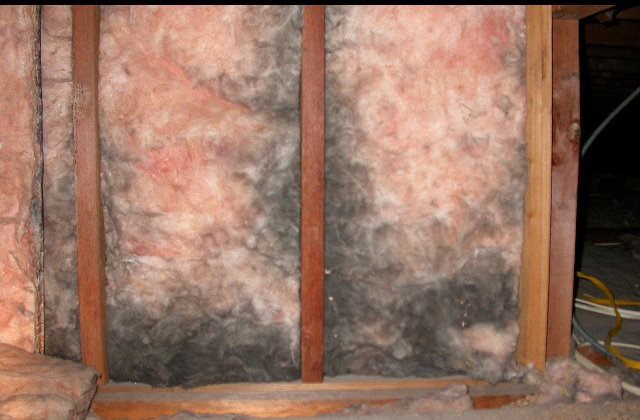
How Hurricanes Impact Your Insulation and What You Can Do About It
Florida homeowners are no strangers to hurricanes and the damage they can cause. When preparing your home for hurricane season, you might think about securing windows, doors, and roofs—but what about your insulation? Many homeowners overlook the effect that hurricanes can have on the insulation in their homes, but it plays a vital role in maintaining comfort and protecting your property during and after storms.
In this blog, we’ll explore how hurricanes impact insulation, the importance of protecting it, and what you can do to safeguard your home.
How Hurricanes Affect Home Insulation
Hurricanes bring a range of damaging elements, including heavy rain, flooding, and strong winds. Each of these can compromise your insulation, leaving your home vulnerable to mold, moisture damage, and energy inefficiency. Let’s break down the specific ways in which hurricanes can affect insulation.
1. Water Damage from Rain and Flooding
One of the most significant impacts of hurricanes on insulation is water damage. Whether from driving rain, leaks, or flooding, excess moisture can severely reduce the effectiveness of your insulation. In Florida, where high humidity is already a concern, the additional moisture from hurricanes can easily penetrate your home’s structure, leading to saturated insulation.
- Fiberglass and cellulose insulation are particularly susceptible to water absorption. Once soaked, these materials lose their ability to trap air and provide thermal resistance. Even if they appear to dry out, they often become compacted or develop mold, rendering them ineffective.
- Spray foam insulation, while more resistant to water, can still be affected if flooding reaches levels where the insulation becomes submerged. Additionally, any damage to the surrounding structure could allow moisture to creep in.
2. Wind-Driven Moisture and Debris
High winds during hurricanes don’t just cause structural damage; they can also drive moisture deep into your home’s walls, ceilings, and attic spaces. Well-sealed homes can experience wind-driven rain that enters through tiny gaps, cracks, or vents. This moisture can then reach your insulation, leading to the same problems as standing water: reduced thermal performance and mold growth.
In addition to moisture, high winds can push debris into your attic or damage your roof, leading to potential breaches in your insulation barrier. Once insulation is exposed, it loses its ability to effectively insulate, and it may require replacement.
3. Mold and Mildew Growth
The combination of moisture, heat, and Florida’s high humidity creates the perfect environment for mold and mildew growth—especially in your attic, where air circulation may be limited. Mold can quickly spread through damp insulation, not only damaging the insulation itself but also posing health risks to you and your family.
Mold-infested insulation must be removed and replaced. Leaving it in place can lead to ongoing indoor air quality issues and further damage to your home’s structure.
4. Structural Damage and Insulation Shifts
Hurricanes can cause structural damage to homes, such as roof or wall breaches, which affect the placement and integrity of your insulation. Even if your insulation isn’t directly exposed to rain or wind, a structural shift can cause the insulation to become misaligned or displaced. This can lead to gaps in coverage, reducing its effectiveness and driving up energy costs.
Furthermore, insulation that has been shifted or damaged during a storm may allow for drafts and moisture to enter your home, further reducing its efficiency.
Why Insulation Matters After a Hurricane
After a hurricane passes, many homeowners focus on visible damage like broken windows, flooded floors, or damaged roofs. However, insulation should also be a priority in post-hurricane repairs. Here’s why:
1. Energy Efficiency
Damaged insulation will not perform as it should, meaning your home will be less energy-efficient. In Florida’s hot climate, which means your air conditioning will have to work harder, leading to higher utility bills. Repairing or replacing insulation after a hurricane can restore your home’s energy efficiency, helping you save on cooling costs.
2. Preventing Long-Term Water Damage
Water-soaked insulation, if left unchecked, can lead to long-term moisture problems within your home’s walls and ceilings. Mold, mildew, and even rot can develop over time, causing extensive and expensive structural damage. Replacing compromised insulation early can prevent these long-term issues.
3. Improved Indoor Comfort and Air Quality
Once the insulation has been damaged, it can no longer effectively control the temperature in your home. You may notice rooms feeling hotter, colder, or more humid than they should. Replacing or repairing your insulation will help restore your home’s comfort level. Plus, removing any insulation that has been exposed to mold will improve the overall air quality inside your home.
Steps to Protect Your Insulation Before and After a Hurricane
Proper preparation can help minimize the impact of hurricanes on your home’s insulation. Here are a few steps you can take before and after a storm to protect your insulation and your home:
1. Inspect Your Attic and Roof Before Storm Season
Before hurricane season begins, inspect your attic and roof for any signs of damage or wear that could allow moisture to enter your home. Look for cracks, holes, or other areas where wind-driven rain could seep through. Also, ensure that your roof is in good condition and that your attic is properly ventilated.
2. Consider Upgrading to Water-Resistant Insulation
If you’re concerned about hurricane-related damage, consider upgrading to more water-resistant insulation, such as spray foam. Spray foam is more durable in the face of water and can help create a tighter seal in your attic, reducing the risk of water infiltration.
3. Check for Insulation Damage After a Storm
After a hurricane, one of your priorities should be checking for any signs of insulation damage. If your home experienced leaks, flooding, or roof damage, it’s crucial to assess whether your insulation was affected. Pay particular attention to areas where moisture may have seeped in, such as the attic and walls.
4. Call a Professional for Inspection and Repairs
It’s always best to call in a professional to inspect your insulation after a hurricane. A trained technician can determine whether your insulation needs to be repaired or replaced and ensure that any hidden moisture or mold is properly addressed.
Conclusion
Hurricanes can cause significant damage to your home’s insulation, impacting everything from energy efficiency to indoor air quality. By preparing your home before a storm and addressing any damage afterward, you can protect your insulation and ensure your home remains comfortable and safe.
If your insulation has been damaged by a hurricane, don’t wait! Call us today for a free estimate at (941) 500-4000 or visit us at Koala Insulation of West Florida. Our team of experts will assess your insulation needs and help restore your home’s energy efficiency.
Ready to book your free insulation evaluation?
We have 3 convienant ways for you to get in touch
We Provide Insulation Services to the Following West Florida Areas
OSPREY, SARASOTA, NOKOMIS, VENICE, BRADENTON, PARRISH, MYAKKA CITY, RUSKIN, APOLLO BEACH, SUN CITY CENTER, RIVERVIEW, WIMAUMA, PALMETTO, ELLENTON, TERRA CEIA, CORTEZ, BRADENTON BEACH, LONGBOAT KEY, BOCA GRANDE, PLACIDA, ROTONDA WEST, PORT CHARLOTTE, ENGLEWOOD, ARCADIA, NORTH PORT
Counties Served
SARASOTA, MANATEE, HILLSBOROUGH, LEE, CHARLOTTE, DE SOTO
Zip Code
34229, 34230, 34231, 34233, 34234, 34236, 34237, 34238, 34239, 34241, 34242, 34249, 34275, 34285, 34201, 34202, 34211, 34212, 34219, 34232, 34235, 34240, 34243, 34251, 33570, 33572, 33573, 33579, 33598, 34221, 34222, 34250, 34203, 34205, 34207, 34208, 34209, 34210, 34215, 34217, 34228, 33921, 33946, 33947, 33981, 34223, 34224, 34269, 34286, 34287, 34288, 34289, 34291, 34292, 34293

